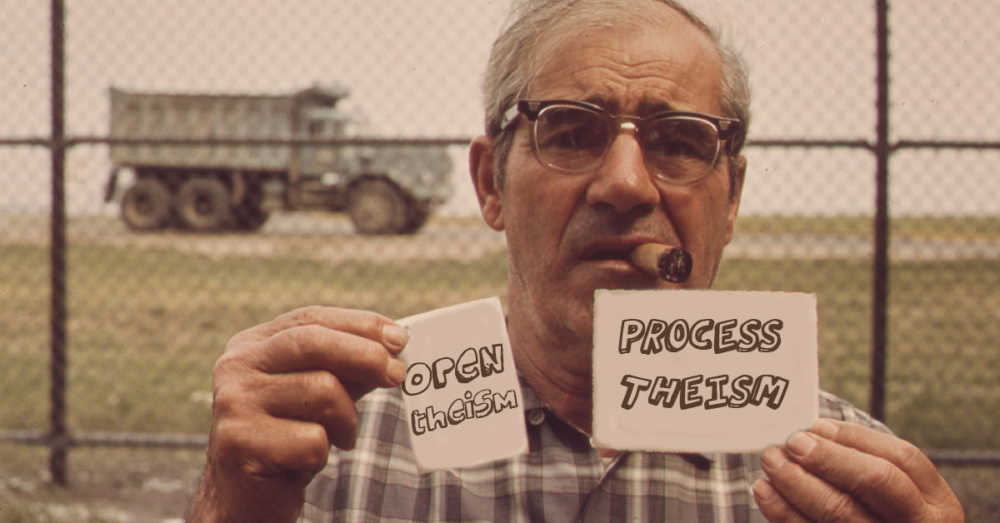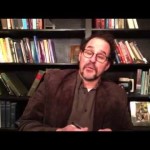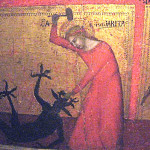We run our website the way we wished the whole internet worked: we provide high quality original content with no ads. We are funded solely by your direct support. Please consider supporting this project.

Process Theology & Open Theism: What’s the Difference?
Question: When ReKnew talks about Open Theism is it a mistake for people to equate it with Process theology, and if so what are the defining differences?
I guess I am starting to lean toward Dr. Boyd’s thoughts for all things theologically egg-heady, so I thought I would ask the question. Your ministry has been freeing for me, and has helped to save my faith after my son had cancer. I only joke because I feel very close to you guys even though we have only met in passing in a very crowded coffee shop and after a couple of sermons that hit me so hard I was at a loss for words.
Answer: Thanks for the kind words of affirmation. I wrote my doctoral dissertation on Process thought (Trinity and Process) where I critiqued the metaphysics of Charles Hartshorne and tried to demonstrate that one can adopt a system that has all the explanatory power of Process Thought (PT) without its unorthodox implications. The unorthodox implications are these.
- In PT, God exists eternally in relation to a non-divine world. So PT denies “creation ex nihilo”
- In PT, God is bound to metaphysical principles that govern both God and the world. So God isn’t able to really interact with the world as a personal being. God must always, of necessity, respond in ways that the metaphysics of the system stipulate. This means…
- In PT God can’t intervene in unique ways, like personally answering prayer
- In PT God can’t intervene and perform miracles
- In PT God can’t become uniquely embodied, as he is in Christ.
These are pretty serious shortcomings. I hope it’s clear that PT has got little in common with Open Theism other than that we both believe the future is partly comprised of possibilities. But even here there is a major difference. In Open Theism, God chooses to create a world with an open future, while in PT God has created of necessity.
I am very concerned that so many progressive thinking evangelicals are flirting with Process Thought. It’s really not a friendly home for anything like orthodox Christianity. While many find the dynamic and relational ontology of process thought, compelling—I can see how this is attractive— the intrinsic nature of the system is hostile to the Christian faith.
If you want to go deeper on this topic, my book Trinity and Process seeks to clarify all that’s positive with PT while avoiding all that’s negative. For a succinct summary of some of the shortcomings of PT, see chapter 9 in my book Satan and the Problem of Evil.
Category: Q&A
Tags: Open Theism, Process Theology, Q&A
Topics: Open Theism What it is and is not
Related Reading

Free Will: What about “natural” evil? Was Hurricane Sandy a Free Agent?
What about natural evil? How does free will help to make sense of this? Greg reflects on the origins of sickness, natural disaster, animal suffering and so on. Hope you’re enjoying the series so far. There’s more to come!

What is the significance of Acts 15:7?
At the Jerusalem council, “Peter stood up and said to them, ‘My brothers, you know that in the early days God made a choice among you, that I should be the one through whom the Gentiles should hear the message of the good news…’” The tense of the verb that locates God’s “choice” in “the…

God is Flexible: Romans 9, Part 4
As we continue this series on Romans 9, [Here’s the link to the first post in the series.] today we will look at the famous potter/clay analogy. Most tend to interpret the potter and clay image as supporting the deterministic view of God. But in fact, it teaches just the opposite. This is the fifth argument…

How do you respond to Acts 2:23 and 4:28?
Question: Acts 2:23 and 4:28 tell us that wicked people crucified Jesus just as God predestined them to do. If this wicked act could be predestined, why couldn’t every other wicked act be predestined? Doesn’t this refute your theory that human acts can’t be free if they are either predestined or foreknown? Answer: In Acts…

Single and an Open Theist—Help! (podcast)
Greg, Dan, and Barbara talk about looking for love in a chaotic world. Episode 515 http://traffic.libsyn.com/askgregboyd/Episode_0515.mp3

Warfare Worldview: A Basic Definition
The warfare worldview is based on the conviction that our world is engaged in a cosmic war between a myriad of agents, both human and angelic, that have aligned themselves with either God or Satan. We believe this worldview best reflects the response to evil depicted throughout the Bible. For example, Jesus unequivocally opposed evils…
